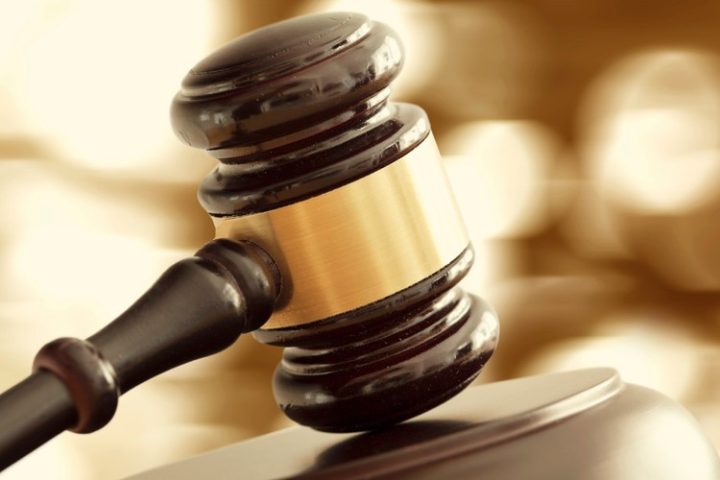
President Donald Trump was handed a victory on Thursday when Pennsylvania Judge Mary Hannah Leavitt ruled thatPennsylvania Secretary of State Kathy Boockvar exceeded her authority when she changed the election deadline two days before Election Day.
On November 1, Boockvar, a Democrat, issued a new guideline modifying how voters could provide proof of identification following a Pennsylvania Supreme Court decision to accept mail-in ballots three days after November 3. Pennsylvania law stipulates that voters have until November 9 to present the proper identification; Boockvar, in her new guidance, Boockvar, changed the date to provide positive ID until November 12.
President Trump’s lawyers sued the state, contending that Boockvar exceeded her authority in arbitrarily changing the date.
Judge Leavitt, presiding over the case, presented her opinion on November 12 that read:
The Court concludes that Respondent Kathy Boockvar, in her official capacity as Secretary of the Commonwealth, lacked statutory authority to issue the November 1, 2020, guidance to Respondents County Boards of Elections insofar as that guidance purported to change the deadline … for certain electors to verify proof of identification.
Judge Leavitt’s decision reads:
The Court hereby ORDERS that Respondents County Boards of Elections are enjoined from counting any ballots that have been segregated pursuant to paragraph 1 of this Court’s order dated November 5, 2020….
In Pennsylvania Democratic Party v. Boockvar, the Pennsylvania Supreme Court exercised its extraordinary jurisdiction to adopt a three-day extension of the received-by deadline for absentee and mail-in ballots for the 2020 General Election, thereby allowing Respondents County Boards of Elections to count all such ballots that were postmarked by 8:00 p.m. on Election Day, Tuesday, November 3, 2020, and received by the County Boards no later than 5:00 p.m. Friday, November 6, 2020.
Secretary Boockvar’s interpretation of the Supreme Court’s decision as requiring a corresponding three-day extension of the proof of identification deadline highlights the cascading effect that altering one deadline in the Election Code can have on other statutory deadlines. Mindful of this, the petitioners in Pennsylvania Democratic Party, i.e., the Pennsylvania Democratic Party and several Democratic elected officials and candidates, asserted that the Supreme Court “has the authority to alter [post-election] deadlines to be consistent with the relief granted” in that case. The petitioners’ observation persuades the Court that an amendment of the Supreme Court’s order is necessary to achieve Secretary Boockvar’s objective.
According to the Philadelphia Inquirer, this decision will only affect a small number of votes, 2,100 in Pennsylvania’s largest county, Philadelphia. Democrats can appeal to the Pennsylvania Supreme Court concerning Leavitt’s decision.
While this issue is one step closer to being closed, there are numerous other issues to be determined in what appears to be massive voter fraud in Pennsylvania, including a claim by an unnamed researcher for the Epic Times who stated that there are:
more than 20,000 absentee ballots in Pennsylvania have impossible return dates and another more than 80,000 have return dates that raise questions, according to a researcher’s analysis of the state’s voter database….
The analysis of the publicly available data was conducted by a data researcher who submitted it first to the Chinese-language edition of The Epoch Times. The researcher, who spoke on condition of anonymity, said he consulted about the matter with several USPS field engineers, who said the return dates shown in the database are “impossible.”
And a lawsuit by the Public Interest Legal Foundation (PILF) arguing that:
Pennsylvania has failed to maintain voter registration records in violation of federal and state law, according to a press release. PILF alleged that in an October analysis, it found at least 21,000 apparently deceased citizens on the state’s voter rolls, according to the complaint.
“This case is about ensuring that those deceased registrants are not receiving ballots,” said J. Christian Adams, PILF president, and general counsel, according to the press release. “This case isn’t complicated. For nearly a year, we’ve been offering specific data on deceased registrants to Pennsylvania officials for proper handling ahead of what was expected to be a tight outcome on Election Day.”
“When you push mail voting, your voter list maintenance mistakes made years ago will come back to haunt in the form of unnecessary recipients and nagging questions about unreturned or outstanding ballots,” he continued.
The number of alleged voting frauds indicates that this is not an election but rather an attempted coup. And in all coups, there are casualties, as shown Friday by the withdrawal of Jones Day and Porter Wright Morris & Arthur for their role as counsel to the Pennsylvania Republican Party and President Donald Trump. While the firm is not releasing any details on why they are withdrawing from Trump’s team, there is reason to suspect it involves harassment by a group of Anti-Trump Republicans called the Lincoln Project. The level of illegal and immoral activities by anti-Trump operatives in this year’s presidential election suggests not only that this was a coup attempt to remove the U.S. president via vote fraud, but also puts in jeopardy free elections in the future — unless the coup attempt is exposed and derailed.



